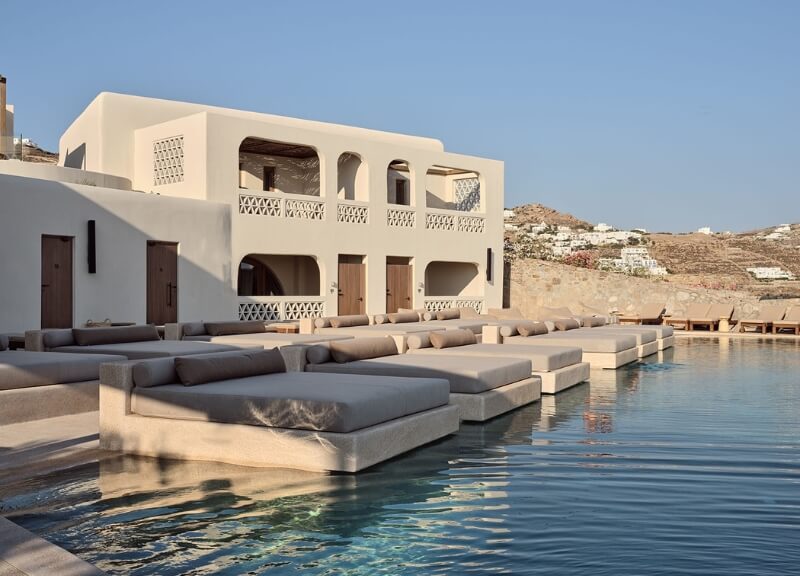
Cycladic Elegance and Artisan Baking: Urban Soul Project’s Dual Hospitality Triumphs
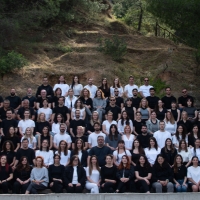
Urban Soul Project has been honored in the Hospitality category by the Architecture MasterPrize for two contrasting yet complementary projects: Domes Noruz Mykonos, a luxury boutique hotel harmonizing with the Cycladic landscape, and ERGON Bakehouse in Athens, a contemporary bakery that doubles as a vibrant social hub.
We’ve been in touch with Storytelling Coordinator and Graphic Designer at Urban Soul Project, Maria Papadouli, to learn how these immersive experiences came to life.
Could you introduce Urban Soul Project and its multidisciplinary approach?
Maria Papadouli: We’re an award-winning studio with architects, engineers, interior designers, and project managers. Over 15 years, we’ve evolved by embracing new materials and techniques while staying true to our philosophy, combining design artistry with sustainability. From hotels and offices to product design, our goal is to create “living” spaces that fulfill function and enrich daily life. Each commission challenges us to push boundaries and contribute meaningfully to the urban fabric.
What guided your vision for Domes Noruz Mykonos?
Maria Papadouli: The brief was to craft a boutique hotel that both respects Mykonos’s whitewashed Cycladic language and offers a fresh take on local hospitality. We began with deep research into the island’s history and vernacular, organic forms, natural textures, and simple geometry. Our challenge was to reinterpret those traditions for modern luxury, ensuring guests feel immersed in a serene, place-rooted retreat.
How did your design process differ for ERGON Bakehouse?
Maria Papadouli: There, the focus was on sensory engagement: the aromas, textures, and rhythms of baking. We studied authentic Greek bakery traditions and ERGON’s brand narrative, then used warm woods, natural stone, and strategic lighting to create an inviting atmosphere. We integrated production zones visibly, so visitors can watch the craft, reinforcing transparency and hospitality without hindering operational flow.
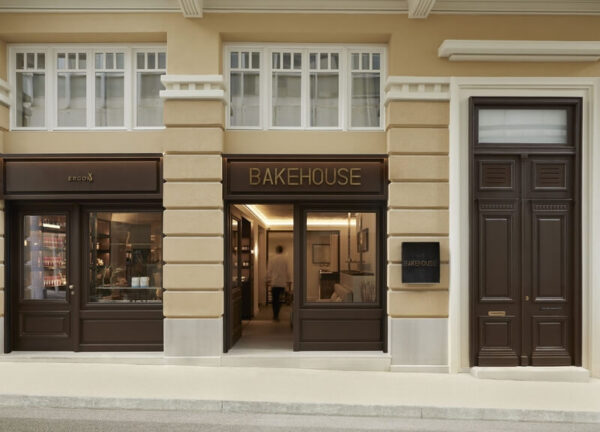
What challenges did you face, and how did you resolve them?
Maria Papadouli: At Domes Noruz, balancing exclusivity with openness was key. The original layout lacked narrative cohesion, so we introduced subtle partitions, layered landscaping, and material transitions to define zones while preserving flow. In ERGON Bakehouse, merging bakery production with retail and café functions required a fluid plan, we positioned ovens and counters to frame experiences, kept sightlines clear, and used durable materials that feel warm and tactile.
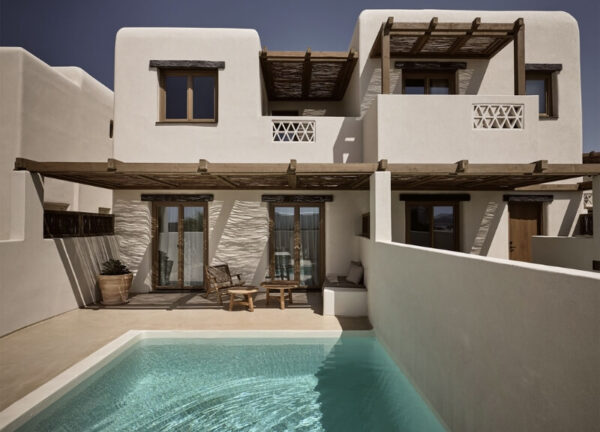
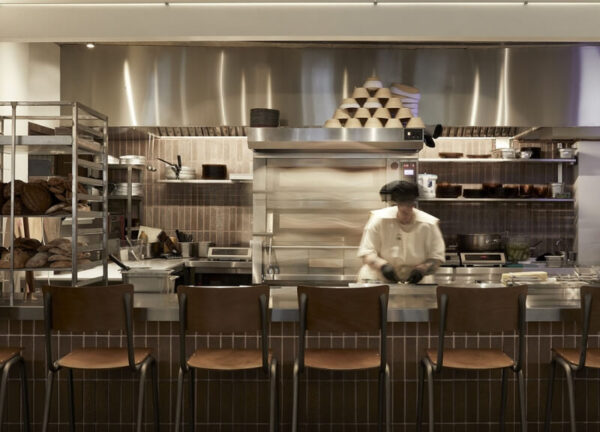
Which aspects of each project do you find most innovative?
Maria Papadouli: For Domes Noruz Mykonos, it’s the interplay of light, shadow, and organic form, whitewashed curves that recall traditional cave dwellings, rendered softly for contemporary comfort. At ERGON Bakehouse, storytelling is woven into every detail: from handcrafted shelving that displays breads like art objects to textured plaster walls echoing dough’s malleability, the bakery becomes a narrative environment.
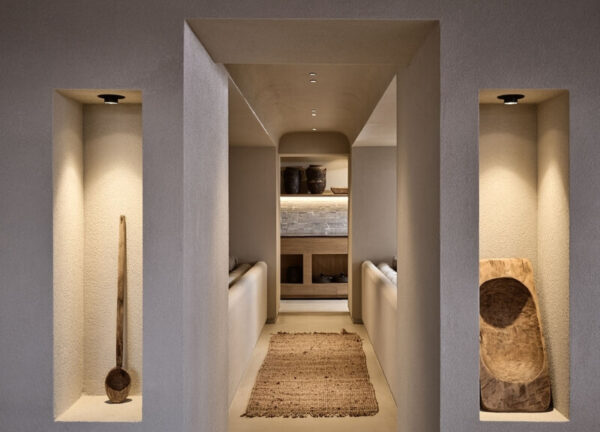
What outcomes are you most proud of?
Maria Papadouli: Domes Noruz offers an immersive retreat where local identity and modern luxury coexist seamlessly. ERGON Bakehouse elevates baking into a communal, cultural experience, people don’t just buy bread, they engage with the craft. Both projects showcase how aesthetics, function, and context can merge to create memorable hospitality spaces.
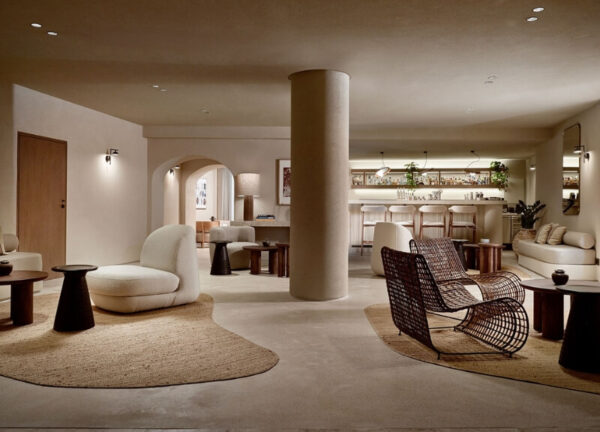
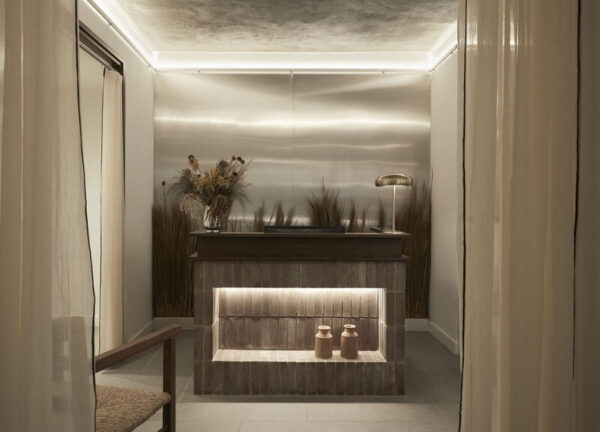
Who or what inspires your design ethos?
Maria Papadouli: We’re inspired by approaches that blend materiality, light, and emotion, architectural storytelling that respects context. Carlo Scarpa’s meticulous detail in the Brion Cemetery remains a touchstone for poetic space-making. More broadly, regional craft traditions and contemporary explorations of texture guide our pursuit of meaningful, context-sensitive design.
How do you envision the future of hospitality design?
Maria Papadouli: Sustainability is paramount, adaptive reuse, bio-based materials, and circular-economy strategies will be standard. Technology like parametric tools and AI will refine form-making, but human-centered narrative and sensory experience must remain core. Hospitality spaces should promote community, well-being, and deeper connections to places.
What does winning the Architecture MasterPrize mean to the Urban Soul Project?
Maria Papadouli: This honor validates our commitment to context-driven, experiential design. It encourages us to continue innovating, respecting heritage, and creating spaces that resonate emotionally. We look forward to more opportunities to reshape environments and enrich lives through thoughtful architecture.
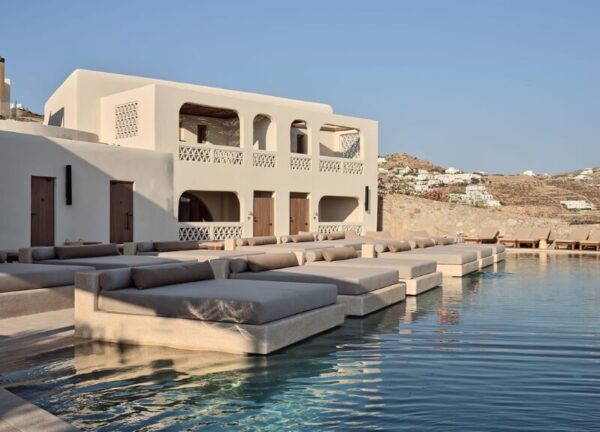
We thank Maria Papadouli and the Urban Soul Project team for sharing their design journey on Domes Noruz Mykonos and ERGON Bakehouse, two distinct interpretations of hospitality where tradition, craft, and narrative converge in unforgettable guest experiences.